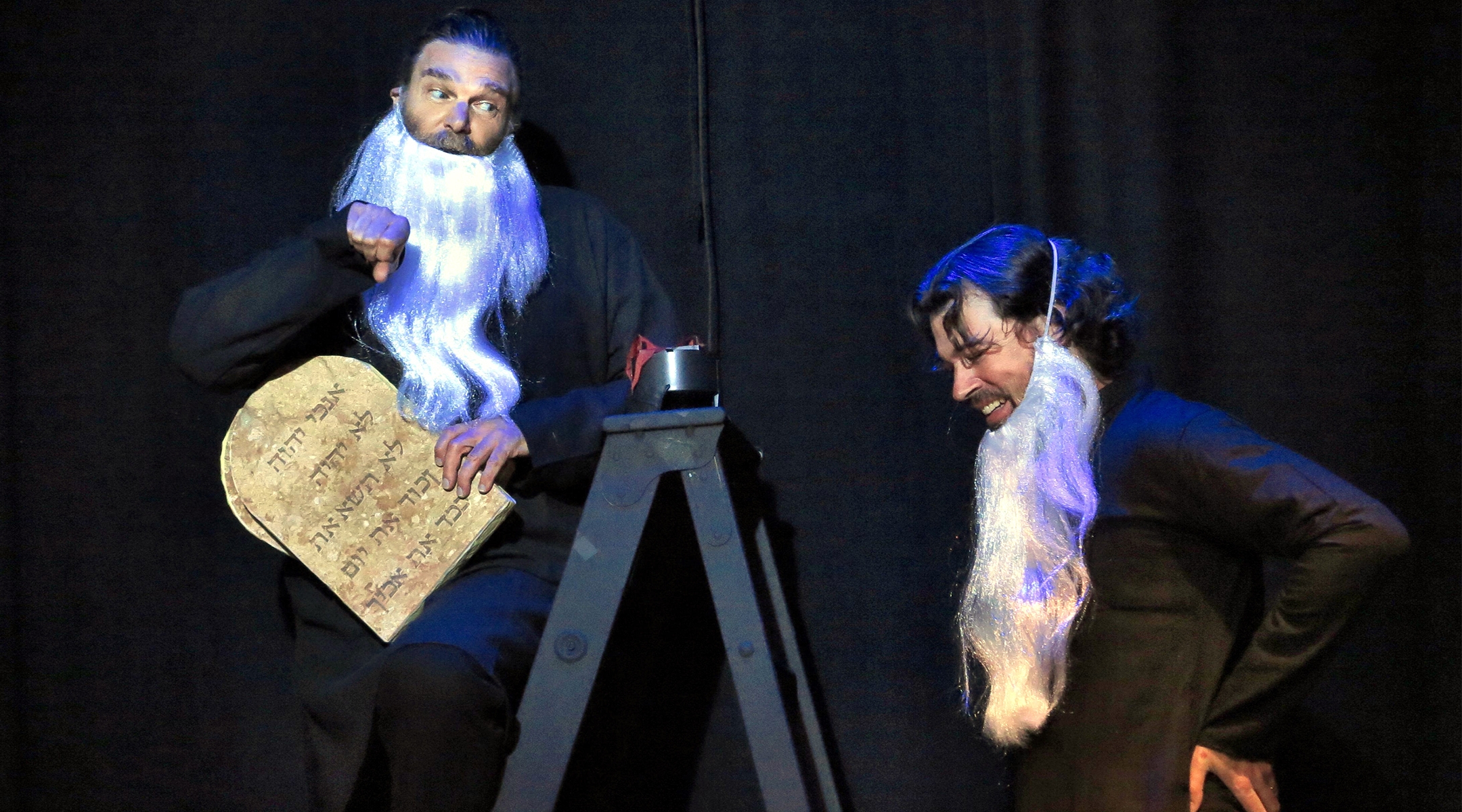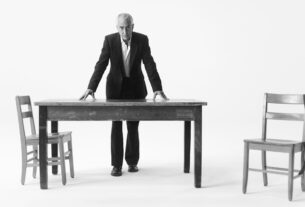As the one-year anniversary of Oct. 7 approaches, the themes of coping with trauma and loss explored in the play “The Goldberg-Variations” are just as relevant now as they were when the play debuted in Vienna more than three decades ago.
Written by renowned Hungarian Jewish playwright George Tabori, the backstage comedy set in Jerusalem touches on the creation and fall of humankind, God, human suffering and deep-rooted antisemitism, all through the lens of humor.
Directed by Manfred Bormann, the play had its American premiere at the Theater for the New City (155 First Ave.) last week and will be on stage there through Sunday, Oct. 6.
Tabori, one of the most notable Jewish playwrights of the 20th century, died in 2007 at the age of 93. Born in Budapest, Tabori lost a significant portion of his family, including his father, in the Holocaust. His personal trauma deeply influenced his work, and he wrote a series of plays that traversed Jewish suffering with wit and satire — 1991’s “The Goldberg-Variations” among them.
Bormann, meanwhile, is an octogenarian director and longtime admirer of Tabori’s work. In an interview with the New York Jewish Week, he described how he’s long felt a kinship with the playwright, having directed many of his plays. Bormann, born in Istanbul, is the son of German Jewish parents who fled Germany in 1937. Like Tabori — who immigrated to the United States from London in 1947 and later moved to Berlin — Bormann made his way to the United States, where he has lived in Brooklyn Heights for the last 50-plus years.
“His work speaks to me as [we are both] the children of refugees,” Bormann said.
Named after Bach’s famous musical composition of the same name, Tabori’s play, like the musical piece, “explores variations on a theme, delving into the different ways in which individuals cope with trauma and loss,” according to the description on the Theater for the New City’s web site.
The lead characters, Mr. Jay, the director (played by Dana Watkins) and Goldberg (played by Derrick Peterson), his assistant and an Auschwitz survivor, are rehearsing a play about biblical stories — both Old and New Testament — in which God doesn’t intervene. Meanwhile, the rehearsal is plagued by a series of mishaps, like arguments and issues with lighting and props.
“The Goldberg-Variations,” which was described in 1992 by The Independent (London) as “a very black comedy,” alternates between of rehearsals of a play-within-the-play with scenes depicting interactions between the play’s actors and the director, “where God and the director are one.”
Scenes like a group of Jewish Hell’s Angels claiming the problems of the world are “all the fault of the Jews” play as satire.
As the Latin American newspaper CE Noticias Financieras put it, “The Goldberg-Variations” present “a story in which the creation of the Universe, the theater and life itself are intertwined.”
Bormann planned to bring “The Goldberg-Variations” to the New York stage last year, but due to unforeseen circumstances, the performances were pushed to this fall — right as the city’s Jewish community prepares for the High Holidays and the first anniversary of the Oct. 7 Hamas attacks on Israel that sparked the ongoing war.
Support the New York Jewish Week
Our nonprofit newsroom depends on readers like you. Make a donation now to support independent Jewish journalism in New York.
The timing may be tricky, but Bormann is nonplussed. “I have no trepidation putting this play on right before the anniversary of Oct. 7,” he said. “The play questions God and religion in a benign way, you take from it what you will.
“Antisemitism has always and unfortunately most likely will be around,” he added. “Right now is a particularly high point and it is the right time to think about it in a play.”
This is Bormann’s fifth show at the Theater for the New City; he said he loves working with the non-profit because they are open to non-mainstream work. With “The Goldberg-Variations,” the audience is exposed to a renowned playwright whose work pushes them to ask big questions.
“He confronts you with blatant antisemitism through the dialogue,” Bormann said. “It’s so multifaceted and has the universal theme of biblical stories. I think it holds up today.”
“The Goldberg-Variations” is running at Theater for the New City (155 First Ave.) through Oct. 6. Get tickets and details here.




